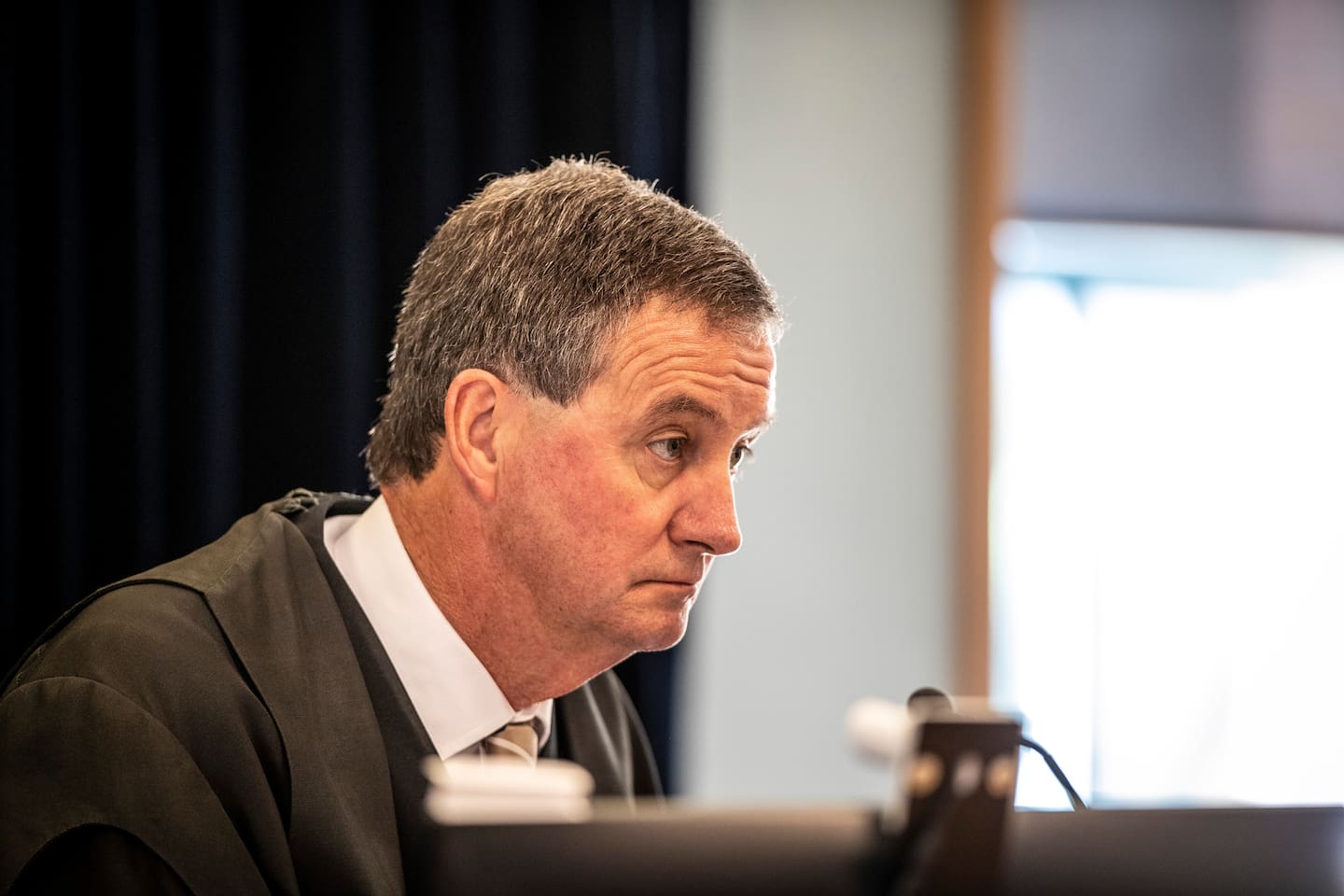

A couple jailed for failing to provide the necessities of life to their toddler found themselves in a desperate financial situation so they turned to a solicitor for help.
Anthony and Mikhal Schmidt were struggling to pay the mortgages on two properties at MangatÄwhiri near Pokeno when they were both found guilty following the death of their 2-year-old daughter.
When they were each sentenced to two and a half yearsâ imprisonment, their economic woes became more immediate.
According to a recently released Supreme Court decision, the couple looked to solicitor and friend Brian Garrity for help, suggesting he buy one of the properties as a means of resolving their difficulties.
The decision said the plan was that Garrity would remove their legal interest in the property and fully repay the loan while allowing Anthonyâs father to remain there paying rent.
In November 2005, shortly before their criminal trial concluded, the couple handed power of attorney to Garrity.
Garrity was also given access to the bank account of their family trust.
Properties sold to solicitor
The following month Garrity signed an agreement on behalf of eBada Property Investments, a new company controlled by him, to purchase one of the properties for $290,000, close to market value.
On settlement eBada paid $160,000 and the remaining $130,000 was âpaidâ by way of a legal release of the couple from their financial obligations.
In November 2006, the second property was sold to eBada under a similar arrangement.
The sale price was $495,000, lower than the market value of $665,000, with $200,000 paid and the remaining $295,000 âpaidâ by way of another legal release of financial obligations.
The fallout
However, things turned sour in 2008 when Anthony wanted to buy the properties back from eBada, making various proposals, which were all rejected.
Garrity said it wasnât possible as both properties had been used to secure more loans.
The relationship broke down.
Garrity then sold one of the properties to a neighbouring landowner in December 2008 without telling the Schmidts.
The second property was sold by mortgagee sale in 2013.
The Schmidts received nothing from either sale.
Court action
The couple took the matter to the High Court, pleading breach of express trust and institutional constructive trust by eBada.
They also took proceedings against Garrity, claiming a breach of fiduciary duty, undue influence and knowing receipt of the proceeds of eBadaâs breach of trust.
At trial, the couple produced an unexecuted declaration of trust, claiming a copy of it had been executed by eBada and themselves in December 2005.
Fabricated document
However, the High Court found the document had a number of unusual features which consequently cast doubt on its authenticity.
Justice Geoffrey Venning said the document had been fabricated by the couple in order to improve their prospects at trial.

Justice Geoffrey Venning. File photo / Michael Craig
Justice Venning found in favour of eBada and Garrity on all grounds, saying there was nothing more than a âgeneral understandingâ that Anthony might buy the properties back in the future.
Court of Appeal upholds decision
The couple appealed the High Court decision, which was recently upheld by the Court of Appeal.
It agreed the couple intended to sell the properties outright to eBada.
The Court of Appeal found there was a shared understanding that Garrity had obligations to the couple in relation to the properties.
But, Anthony had proceeded on the basis that he was entitled to the benefit of the equity in the properties after discharge of the debts secured over the properties.
The couple then appealed the Court of Appeal judgment and argued their appeal raised matters of general and public importance and commercial significance and disclosed a risk of a substantial miscarriage of justice.
Supreme Court dismisses appeal
Supreme Court judges Dame Suzan Glazebrook, Sir Joe Williams and Sir Stephen KÃģs did not consider the proposed appeal raised any matter of general or public importance, or of general commercial significance.

Sir Joe Williams. Photo / George Novak
It was assessed that one matter of wider importance did arise from Garrityâs conduct in relation to the property transactions â namely, the nature and extent of the legal duties of trust imposed on him for exercising power of attorney.
The Supreme Court judgment noted the Schmidtsâ case was not pleaded in that way and their fabrication of the unsigned trust deed, undertaken to improve their litigation prospects and adduced in evidence, disentitled them to equitable relief.
The applications for leave to appeal were dismissed. The Schmidtsâ lawyer, Anthony Woodhouse, did not return calls.
Garrityâs lawyer, Nic Scampion, said eBada and Garrity were grateful to the courts and judges for their careful and expert attention throughout the long process.
âThey are pleased to have the matter finally resolved and for their position to be vindicated.â
Al Williams is an Open Justice reporter for the New Zealand Herald, based in Christchurch. He has worked in daily and community titles in New Zealand and overseas for the last 16 years. Most recently he was editor of the Hauraki-Coromandel Post, based in WhangamatÄ. He was previously deputy editor of the Cook Islands ūÅŌŧÐĮŋÕÎÞÏÞ.

Take your Radio, Podcasts and Music with you
Get the iHeart App
Get more of the radio, music and podcasts you love with the FREE iHeart app. Scan the QR code to download now.
Download from the app stores
Stream unlimited music, thousands of radio stations and podcasts all in one app. iHeart is easy to use and all FREE








